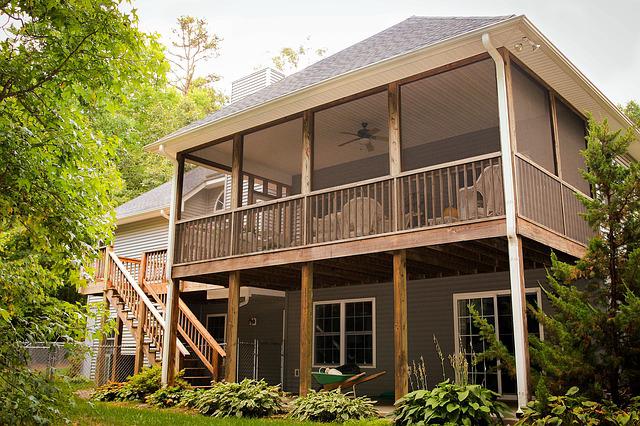The 5 Types of Decks a Homeowner Should Consider
When considering adding a deck to your home, it is essential to check out the different decking material options available. There are five main types of decks: wood, composite, vinyl, aluminum, and cedar. Each type has its own benefits and drawbacks, so it is important to choose the right one for your home. Today, we will discuss the pros and cons of each type of decking material and help you decide which one is right for you!
Wood
Wood decks are by far the most popular type of deck, and for a good reason. They are affordable and easy to maintain compared to other types of decks. Wood decks can be customized to fit your home’s style, and they provide a natural look that complements your landscaping. However, wood decks require more upkeep than other types of decks. You will need to clean and seal your deck regularly to protect it from rot and insect damage. In addition, wooden decks can be slippery when wet, so you need to care when walking on them. But with a little bit of effort, you can enjoy many years of use from your wood deck.
Composite
Composite decks have become increasingly popular as homeowners look for low-maintenance decking options. Composite decks are made from wood fibers and plastic and are designed to look like real wood. These decks are typically more expensive than other decking materials, but they require less upkeep and can be very durable. In addition, composite decks are available in various colors and styles to suit any taste. Composite decks may be the right choice for homeowners looking for a durable, low-maintenance decking option.
Vinyl
Vinyl decks are a popular choice for many homeowners because they are low-maintenance and easy to clean. However, vinyl is a synthetic material that can be susceptible to scratching and cracking. In addition, vinyl decks can fade over time and may require special cleaners to remove mold or mildew. As with any type of decking, it is important to regularly sweep and clean your vinyl deck to prevent dirt and debris from accumulating. You should also inspect your deck for structural damage and repair any cracks or holes as soon as possible. By following these simple tips, you can enjoy your vinyl deck for many years.
Aluminum
Decks are a popular addition to many homes, providing outdoor entertaining and relaxation space. Aluminum decks have become an increasingly popular option in recent years, thanks to their lightweight construction and low-maintenance design. Aluminum decking is also resistant to rot and insect damage, making it a durable choice for any climate. However, aluminum decks can be more expensive than other materials, such as wood or composite. As a result, it’s crucial to weigh the pros and cons of each option before making a final decision. With so many choices on the market, there’s sure to be a perfect decking material for your home.
Cedar
A cedar deck can add both beauty and value to your home. Cedar is a natural insect repellent and resistant to rot and decay, making it an ideal material for a deck. However, cedar decks require more upkeep than other types of decks. The wood must be sealed and stained regularly to protect it from the elements. In addition, cedar is a softwood and can be susceptible to warping in extreme weather conditions. As a result, it is important to carefully consider all the pros and cons of a cedar deck before making a final decision.
Final Thoughts
Now that you know the different decking material options available, it’s time to decide which one is right for you! Consider your budget, maintenance needs, and desired look to find the perfect decking material for your home. If you’re looking for a low-maintenance option, composite or PVC decking might be right. These materials are designed to resist fading, staining, and mold, and they require little to no regular upkeep. If you prefer a natural look, wood decking is an attractive option that can be stained or painted to match your home’s exterior. However, wood does require more maintenance than composite or PVC decking, and it may not be as resistant to weather damage.

